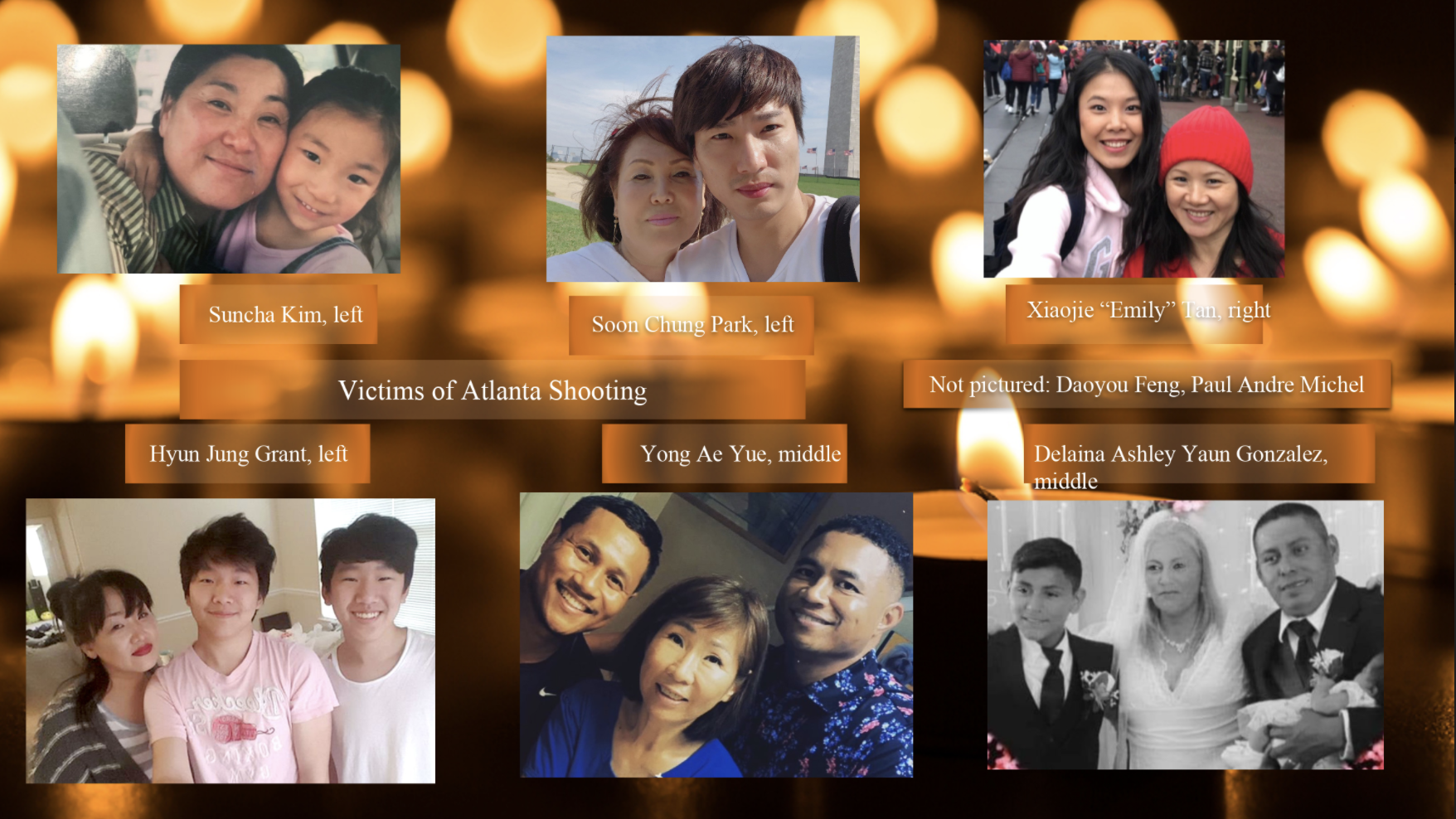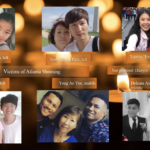
Sanchita Kedia, Contributing Photographer
Members of the Yale community convened online Tuesday to commemorate the lives lost in the March 16 Atlanta spa shootings, grieve together and empower one another to take action against anti-Asian violence.
The Yale College Council, the Asian American Cultural Center, the Muslim Students Association and 13 other student groups organized the vigil. Co-moderators Karen Li ’23 and Lilian Hua ’21 opened the vigil with a moment of silence for the lives lost. There were four speakers: Dean of the AACC Joliana Yee, professor of American studies and history Mary Lui, professor of East Asian languages and literature Tina Lu and Jun Kwak ’22. The vigil ended with time for attendees to unmute and share their feelings, thoughts and reflections. Three hundred community members attended the vigil.
“As I’ve reflected on the events that have occurred in this past week, there’s just a compounding effect,” Yee said during the event. “I see myself, my niece, my grandmother, my auntie in the victims of the Atlanta shooting. It can make it so difficult when you see your own family violated.”
Yee emphasized that events like the shooting in Atlanta do not happen in isolation and that she has seen “loved ones and friends taken by racialized violence.” There have been acts of violence and discrimination against Asian Americansthroughout the history of the United States and it is difficult to continue fighting, she said.
Liu echoed Yee’s sentiments regarding the history of discrimination against Asian Americans in the United States, emphasizing that it originated long before COVID-19.
“From horrific acts of mob violence in the 19th century … to the histories of state violence in the form of immigration exclusion, detention, and deportation, the history of Asian removal and containment has sadly continued into the 21st century,” Lui said.
She encouraged attendees to think beyond the media’s coverage of what the Atlanta assailant was thinking and spend time understanding the systemic structures that enabled such violence to occur.
Caleb Kim ’21 was one student who spoke up during the event. Kim, who is from Atlanta, said that he would often see Gold Massage Spa, one of the sites of the shooting, on the way to his usual grocery store. Recently, he learned that one of the victims was the mother of one of Kim’s childhood friends. Kim spoke of his friend.
“I remember that he was my ‘bus buddy’ and although we weren’t best friends, the news brought up all of these memories that I had stored away,” Kim said. “I realized that I’d forgotten about him all of this time and it brought this feeling of regret and sadness that I hadn’t felt in a long time.”
Kim said the worst part about this event is that everyone almost saw it coming.
Kwak agreed, adding that he felt frustrated and hopeless about the repeated violence towards Asian Americans.
“My initial reaction was fear,” Kwak wrote in an email to the News. “I was afraid that myself and my friends and family of Asian ethnicity could be attacked, especially given the increased hatred towards Asians during the pandemic.
Eui Young Kim ’21, an international student from South Korea, said she knew that her race and nationality could put her at risk and the shootings confirmed her expectations.
“I felt a bit more at peace [after the vigil], ” Kim wrote in an email to the News. “I needed the administration there to listen to my desperate plea for action and I think I was able to do that.”
Although members of the Yale administration — including University President Peter Salovey, Dean of Yale College Marvin Chun, University Champlain Sharon Kugler and Dean of Student Affairs Melanie Boyd — attended the event, Li and Hua felt that the Yale administration did not support them in their endeavor to plan this vigil, which was entirely student-driven. Kim also spoke out against the lack of action from Yale administrators to support students after the shootings.
“I think Yale admin would do well to think critically about what community means, what community looks like, especially as a response,” Hua said.
Hua and Li cited Yale’s social media posts about the new Handsome Dan two days after the shooting as an example of the University’s poor response to the killings.
University spokesperson Karen Peart referred the News to President Peter Salovey’s March 18 message to the Yale community, which emphasized the importance of “finding strength in our shared purpose” and pointed to ongoing research on racism and the “Belonging at Yale” initiative.
Still, Li and Hua both agreed that this vigil provided a space for action and healing even more than they expected it would.
“Students came away with having heard the critical insightful reflections of people who spoke and people felt inspired to be mobilized and not just to stand with Asian American community and deal with violence in general, but to join movements, donate and engage,” Hua said.
The names of the Atlanta victims are Soon Chung Park, 74, Hyun Jung Grant, 51, Suncha Kim, 69, Yong Yue, 63, Delaina Ashley Yaun, 33, Paul Andre Michels, 54, Xiaojie Tan, 49, and Daoyou Feng, 44.
Sanchita Kedia | sanchita.kedia@yale.edu









